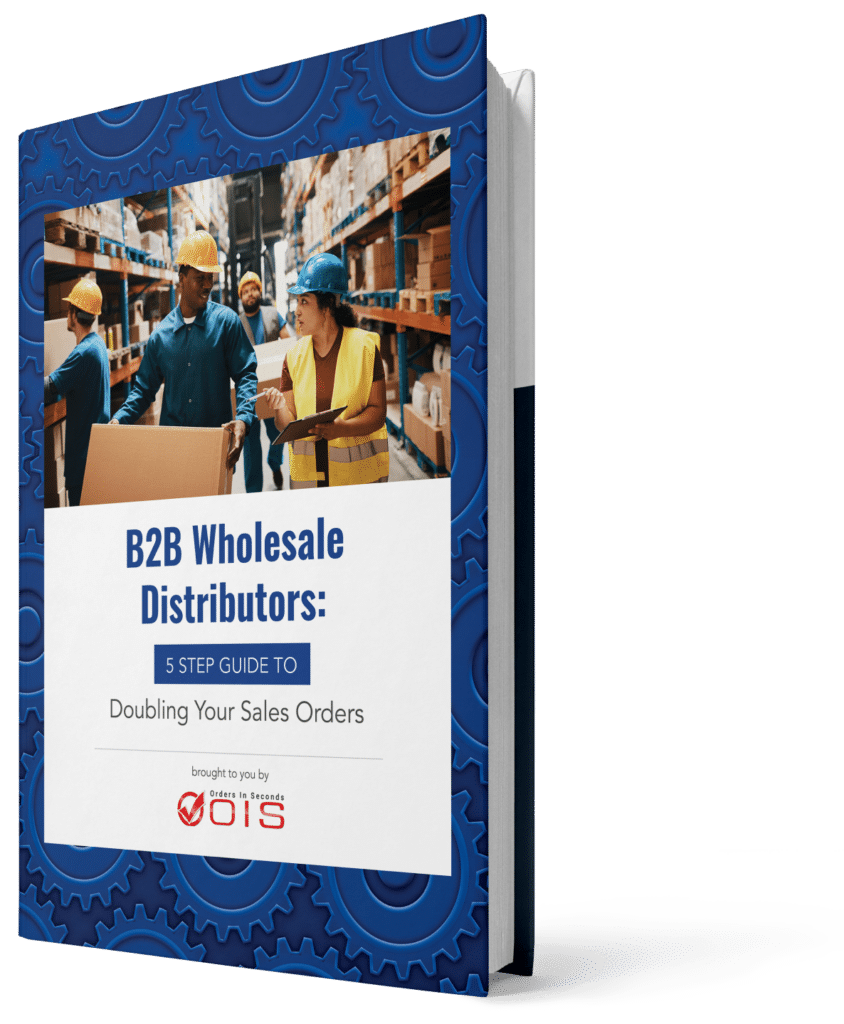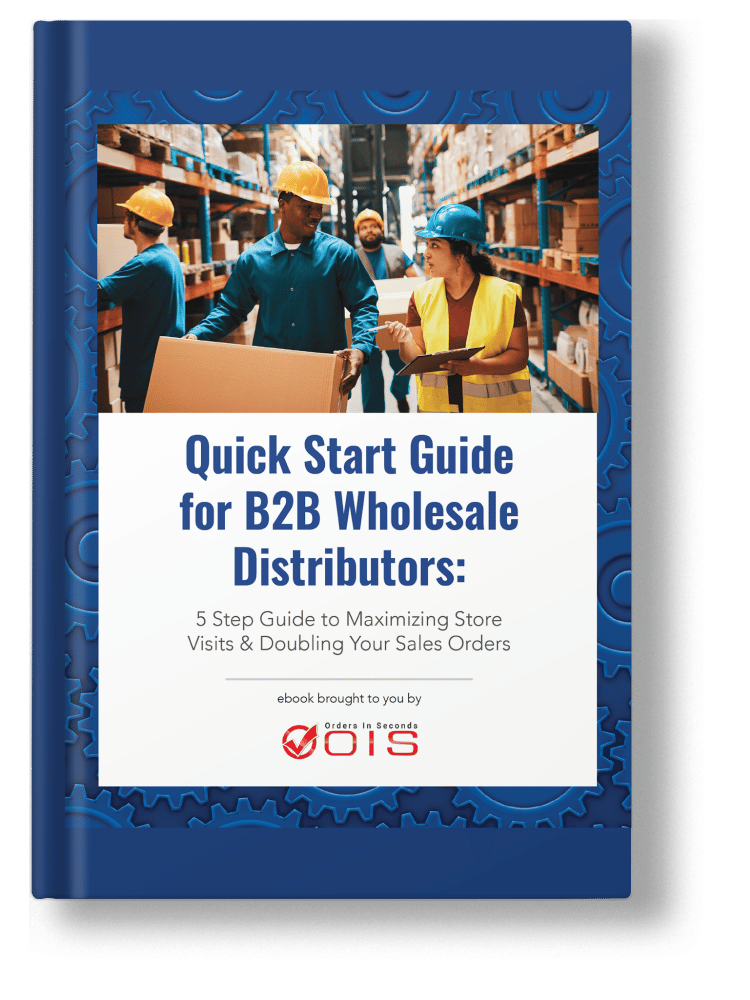What Is Sales Route Planning?
Sales route planning is the process of creating a schedule for customer visits. In other words, it is the process of determining the most efficient route for your sales representatives to take from point A to point B and the order in which they should visit these specific locations.
The first step in planning a sales route is deciding which clients need to be visited. Then, depending on a variety of variables like already scheduled fixed appointments, client preferences, geographic location, and urgency, you decide who to visit and when.
Finally, you figure out how to arrange your customer visits so that you can visit as many customers as possible while driving a few miles.
Prior to modern technology, Excel spreadsheets were primarily used for route planning. Manual sales route planning was a time-consuming process that made it difficult for sales managers to identify the routes that were the most effective. However, with the help of sales route planning software, which uses automated data collection and organization to create optimized route schedules, these processes can now be carried out much more quickly and effectively.
Why Is Sales Route Planning Important?
As you perform your daily tasks, you face challenges, such as finding ways not to miss opportunities, maximizing your time, and understanding market dynamics. All of these could lead to a poor understanding of your routes. Once this happens, you may find yourself overlooking a whole lot of opportunities.
Thankfully, all these difficulties can be overcome by using routing in sales planning and a sales route planner. Field reps and sales teams who plan sales routes using a mobile sales tool enjoy a number of compelling benefits:
1. Increased sales revenue
Sales route planning gives you a greater ability to implement sales strategies and achieve your goals. Because you can reach more customers per mile traveled and per hour spent, you have more opportunities to make sales. Plus, you can prioritize your best sales opportunities, increasing your closing rate and the value of the sales you generate. This increases your chances of hitting your target sales figure.
2. Improved efficiency and productivity
In addition to generating more sales revenue, sales route planning allows you to waste less time and money. By optimizing your route planning, you spend less time on customers who are unlikely to close and more time on those who do. You also reduce the likelihood of encountering customers who are not ready for your visit, thereby reducing the number of wasted opportunities.
2. Reduced mileage cost
In addition, you also save money on mileage. Instead of zigzagging randomly from one customer to another, you can plan the most efficient route. This lets you drive fewer miles while getting more done with the same tank of fuel. Simultaneously, you lower the amount you pay in taxes at the fuel pump.
4. More potential customers
You can plan your route based on objective data instead of intuition, yielding better results. Although following your intuition might lead you to friendly customers and a good chat over good coffee. Planning routes based on customer data leads to big deals and real profits.
5. Optimized sales
Using a sales app and planning your route puts you in the driver’s seat of your sales territory. Instead of waiting for a sale to happen, you can strategically plan how to optimize your sales journey and results.
All these benefits make planning a sales route a best practice for any serious sales rep. If you don’t do sales route planning, you receive a lower return than you could get for the amount of time you invest.
The Most Common Route Planning Challenges
Sales route optimization is about much more than getting reps from one prospect to the next in a timely manner. It’s about getting the right rep to the right location, in a way that advances overarching sales goals, while accounting for the unexpected.
1. Sending the right reps
Each of your field reps has different strengths and skill sets, which need to be considered during the sales rep route planning process.
You don’t want to send a novice rep to handle the main account, do you? Of course not. Your sales route planning efforts need to take these challenges into account.
2. Achieving overarching sales goals
Apart from bringing in new customers, you also need to satisfy the customers you already have and make them loyal. To do this, your field representative may also have to visit current customers from time to time.
It can be a hassle to plan routes that allow reps to venture into new territories while reconnecting with clients in old ones. But you must complete this sales route mapping challenge to achieve your overarching sales goals.
3. Meeting high-value clients
A well-designed sales route will lead your field reps where they need to go. But don’t forget, they actually need to talk to leads or customers once they get there.
Your planned sales route should allow for meeting times. They also need to allow reps to meet high-value prospects at the most opportune time. This is not easy to do, but it is essential to the success of your field sales team.
4. Dealing with the unexpected
In sales, sometimes things don’t go exactly as planned.
The prospect cancels the meeting. The field rep runs into car trouble and a traffic jam. Weather can prevent prospects and reps from reaching the designated meeting place. The truth is, a million things can go wrong and ruin your sales route.
It’s important how your field sales team handles the unexpected. Fortunately, the way you plan your sales route can make the unexpected easier to deal with.
How to Plan a Sales Route (Using Common Methods)
We’ve discussed the benefits of mapping sales routes, as well as the challenges you often face. Now, let’s talk about the different methods you can use to plan an efficient route for your field rep. There are three worth mentioning:
1. Using Spreadsheets
You could plan a sales route using a spreadsheet tool such as Google Sheets or Microsoft Excel. However, we definitely would not recommend this method.
Planning sales routes through spreadsheets is very tedious and time-consuming. It’s also largely ineffective because it doesn’t allow you to determine the most efficient route between prospects or prioritize high-value prospects.
The spreadsheet method also makes it difficult to adapt to unforeseen situations, which, as we discussed above, is a common challenge.
2. Using Google Maps
When it comes to planning a sales route, Google Maps is a much better tool than a spreadsheet because it actually helps the rep get from point A to point B. However, it’s not a perfect solution, as it doesn’t let you:
- Reroute automatically: What happens when a prospect cancels a meeting? Google Maps doesn’t allow users to change routes automatically, which means your reps will lose time and waste money in the field.
- Track reps in real-time: As a sales manager, you want to know where your reps are in the field. It helps you track your team and their progress toward goals. Google Maps does not have a sales rep tracking feature.
- Upload multiple addresses at once: How many prospects does your rep visit each day? 20 prospects? 30 prospects? With Google Maps, you have to upload each address manually, which is a waste of time.
3. Using Sales Route Planning Software
When it comes to sales routing planning, the best tool to use is route management software. This solution is specifically designed to optimize sales routes. It is equipped with the features needed to effectively accomplish this task.
Route sales b2b software will help your field reps get from point A to point B in the most efficient way. It will also allow you to prioritize certain prospects, easily adjust routes on the fly, and enter multiple addresses at once.
The best part about sales route planning software is its ease of use. You don’t have to think long and hard about which leads your rep should visit and when. You simply enter the information into the tool and let it design an optimized route for you.
Final Thoughts
Sales route planning is critical to the success of your field sales team. Once you invest in the sales route planning software, your reps will be more productive, incur fewer costs and result in happier customers. You’ll also have much more control over your day-to-day reps, which is always beneficial.
Now, the question is, which sales route app is right for you and your team? We encourage you to consider Badger, which has been used by many sales reps in various industries due to its powerful and easy-to-use tool. If you want to know more about how this app can help your sales route planning, please contact us.
The Art of Designing an Effective Sales Route
Crafting a successful sales route involves a delicate balance of strategy and logistics. Sales professionals must consider factors like geographical location, customer preferences, traffic patterns, and time constraints. A well-designed sales route can significantly improve efficiency, reduce travel time, and increase customer interactions.
Navigating Challenges: Adapting Sales Routes in a Dynamic Market
In a constantly evolving business landscape, sales routes must be adaptable to stay effective. Factors such as market trends, customer behavior shifts, and unforeseen obstacles can impact the success of a sales route. Sales teams need to remain agile, ready to modify their routes in response to changing circumstances. This adaptability not only ensures that the sales force reaches the right clients at the right time, but also demonstrates the company’s commitment to meeting customer needs in any situation.
Technology’s Role in Revolutionizing Sales Routes
Advancements in technology have transformed the way sales routes are planned and executed. GPS navigation systems, route optimization software, and real-time traffic updates have revolutionized the efficiency and accuracy of sales journeys. These tools enable sales representatives to spend less time on the road and more time building relationships with clients.
Maximizing Customer Engagement: Personalization along the Sales Route
A successful sales route extends beyond mere transactional interactions; it’s about creating personalized experiences for customers. By analyzing data and understanding client preferences, sales representatives can offer tailored solutions that resonate with each prospect. This personal touch not only increases the likelihood of closing deals but also fosters long-term customer loyalty.
Sustainable Sales Routes: Balancing Profit and Environmental Impact
In today’s eco-conscious world, businesses are increasingly focused on reducing their carbon footprint. This ethos extends to sales routes, where companies strive to strike a balance between profit generation and environmental responsibility. Consolidating sales visits, utilizing fuel-efficient vehicles, and exploring alternative transportation methods all contribute to sustainable sales routes.
The Human Element: Relationship Building through Face-to-Face Sales Routes
While technology plays a crucial role in sales, the power of face-to-face interactions cannot be understated. Sales routes provide opportunities for salespeople to establish genuine connections with clients, understand their pain points, and provide immediate solutions. These interactions go beyond what emails and phone calls can achieve, fostering trust and loyalty. A well-crafted sales route emphasizes the importance of the human touch in a digitally connected world.
Navigating Success: The Art of Designing an Effective Sales Route
In the realm of sales and distribution, a well-crafted “sales route” is the blueprint for optimizing efficiency, customer engagement, and revenue generation. It entails strategically mapping out the journey that sales representatives embark on to connect with clients and prospects. A meticulously planned sales route takes into consideration factors such as geographical proximity, customer preferences, traffic patterns, and time constraints.
What is sales route?
How to design a sales route?
Do you know the importance of a good sales route?
Navigating Success with an Optimal Sales Route: Enhancing Efficiency and Productivity
In the realm of sales and distribution, a well-structured sales route plays a pivotal role in driving business success. A sales route is more than a path; it’s a strategic journey that empowers sales teams to maximize efficiency, reach clients effectively, and boost overall productivity. By optimizing the sales route, businesses can minimize travel time, reduce fuel costs, and enhance customer satisfaction through timely visits.
Sales Route
A sales route is the strategic roadmap that guides sales professionals to success. Whether they’re navigating city streets or rural highways, it’s a meticulously planned journey that connects sales representatives with potential customers. With precision and efficiency, sales routes optimize territory coverage, minimize travel time, and maximize face-to-face interactions. These routes are the lifeblood of sales operations, ensuring that products and services reach the right audience at the right time.





